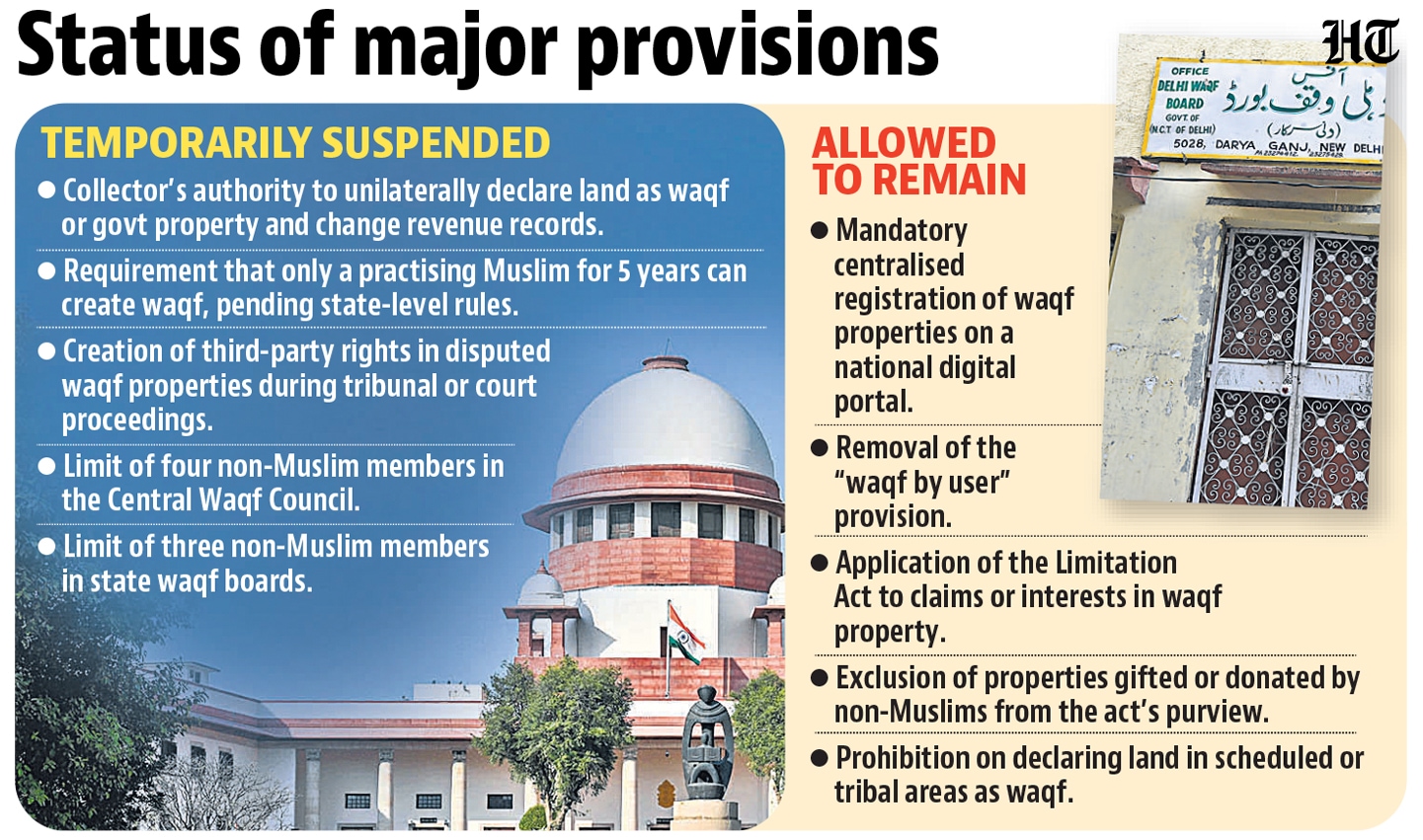
The Supreme Court on Monday prima facie upheld the Union government’s move to abolish the concept of “waqf by user” under the Waqf Amendment Act, 2025, observing that the provision had been widely misused to claim vast tracts of government land as waqf property.
The bench comprising Chief Justice of India Bhushan R Gavai and justice AG Masih, while declining to stay the provision, held that the amendment “cannot prima facie be said to be arbitrary.”
It noted that the legislature, in enacting the deletion, was addressing a real problem of encroachment of public property under the cover of “waqf by user” – where properties were declared waqf based on long-standing community use rather than formal dedication.
Also Read: SC ruling on Waqf Act a fine balance of presumption of constitutionality, property rights
“Not only that, but we are also of the view that if the legislature, in 2025, finds that on account of the concept of ‘waqf by user’, huge government properties have been encroached upon and to stop the said menace, it takes steps for deletion of the said provision, the said amendment, prima facie, cannot be said to be arbitrary,” the court held.
The bench further underlined that the deletion would operate prospectively and would not affect waqfs already validly registered under earlier enactments. Petitioners had argued that “waqf by user” was a concept embedded in Muslim law and that removing it struck at the very foundation of waqf jurisprudence. However, the court reasoned that registration of waqfs had been mandatory since as far back as 1923 and that mutawallis who had failed to comply with registration requirements for decades could not now claim exemption.
“Right from 1923, in all the enactments we have referred to, there was a requirement of registration of waqfs. We are, therefore, of the view that if mutawallis ((waqf managers) for a period of 102 years could not get the waqf registered, as required under the earlier provisions, they cannot claim that they be allowed to continue with the waqf even if they are not registered,” said the bench.
Also Read: Supreme Court declines to stay Waqf Act but halts key clauses
To an argument that there would be no waqf deeds available in several cases, the court pointed out that the 1995 Waqf Act allowed applications to be made giving full particulars of such properties. “We are, therefore, of the view that if for 30 long years, the mutawallis had chosen not to make an application for registration, they cannot be heard to say that the provision which now requires the application to be accompanied by a copy of the waqf deed is arbitrary.”
The court referenced a recent dispute before it when the Andhra Pradesh government had to approach it for setting aside the state waqf board’s decision to notify thousands of acres of land belonging to the state as waqf property. By a judgment in 2022, the Supreme Court quashed the notification, holding that the land vest with the state and its bodies.
The court further rejected apprehensions that the amendment would allow the state to “grab” waqf properties, noting solicitor general Tushar Mehta’s statement that the provision would not apply retrospectively.







